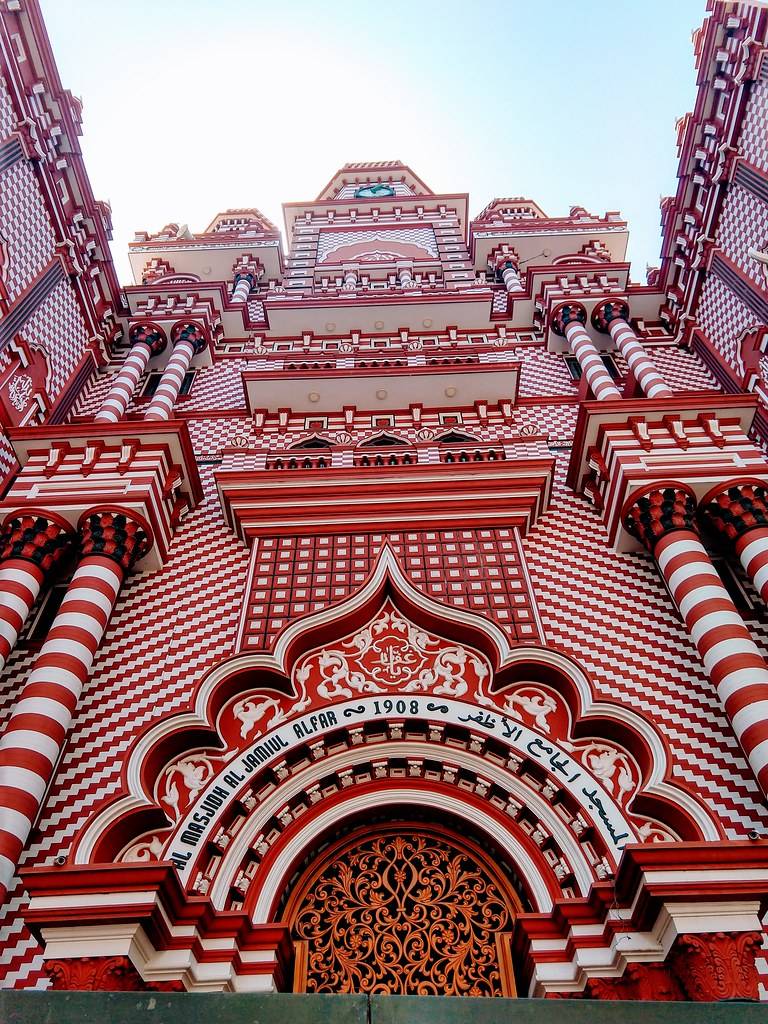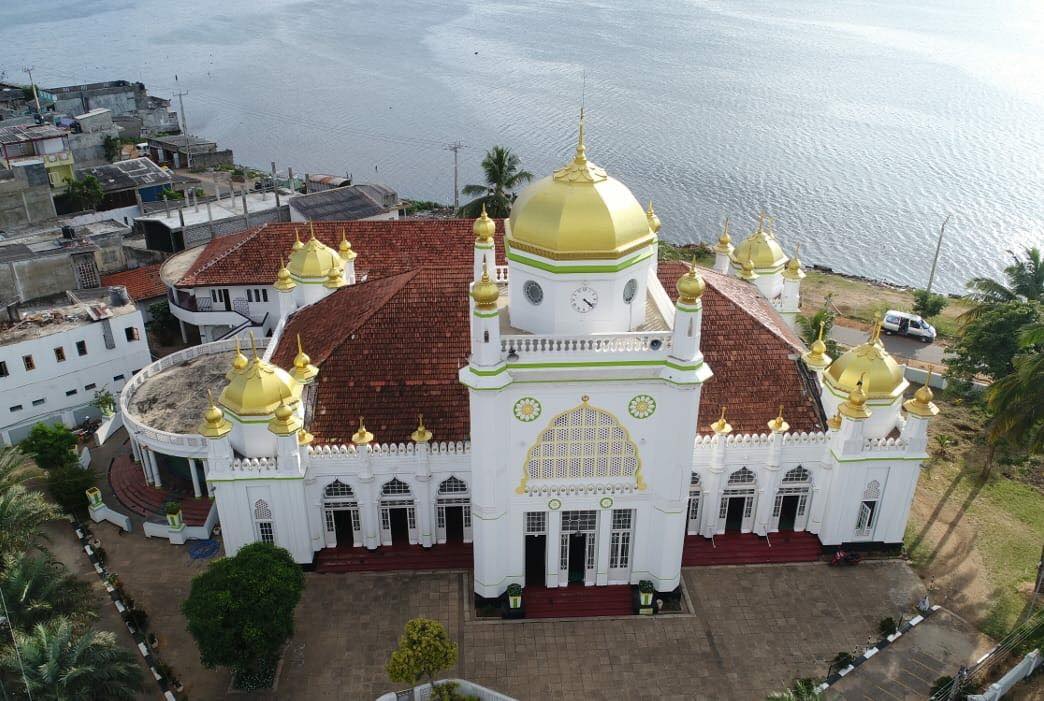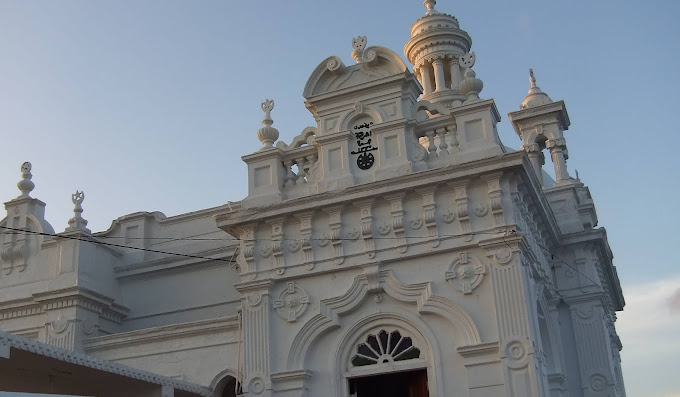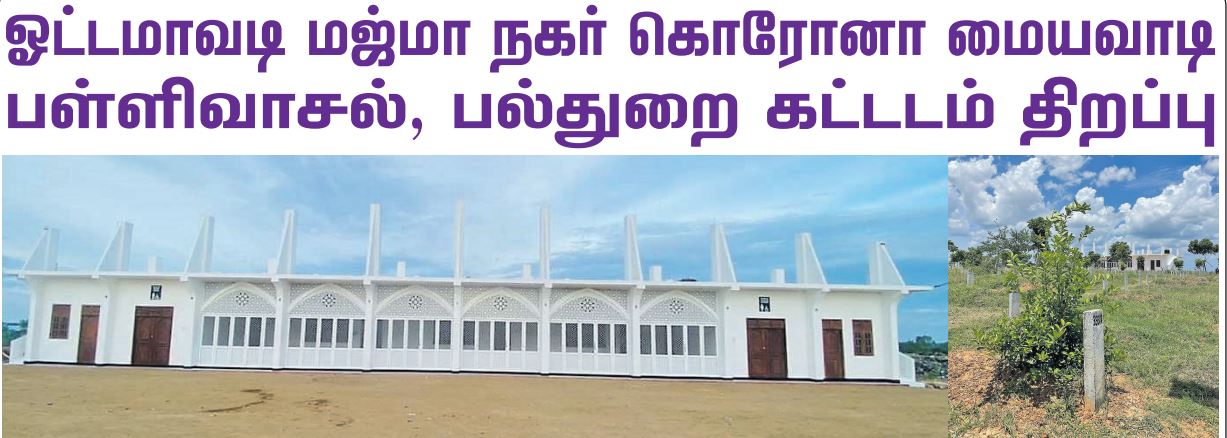As the primary religious institution, the masjid has the greatest role in community building, and its success in performing this role is essential for the wellbeing of the community, particularly where Muslims live as minorities. Sadly, the role of the masjid in many Muslim communities around the globe has recently been reduced to being a physical place where prayers are offered. It is time to reverse that trend and revive the role of this institution to what it was in the early history of Islam. Such a revival cannot be fully realized without first developing a clear understanding from the revelation, the Qur'an and Sunnah, about the importance, virtue, and role of the masjid in Islam.
The Messenger of Allah ṣallallāhu 'alayhi wa sallam (peace and blessings of Allāh be upon him) said,
“خَيْرُ البِقَاعِ المَسَاجِدُ وشَرُّهَا الأَسْوَاقُ“
“The best patches [of earth] are the masājid and the worst are the markets.” [Reported by Ibn Hibbân]
Thus, Allah chose His Prophets to establish them, He said,
“وَإِذْ يَرْفَعُ إِبْرَاهِيمُ الْقَوَاعِدَ مِنَ الْبَيْتِ وَإِسْمَاعِيلُ”
“And [mention] when Abraham was raising the foundations of the House and [with him] Ishmael.”
[Q 2:127]
And He commanded them to purify them and keep them clean, He said,
“وَعَهِدْنَا إِلَىٰ إِبْرَاهِيمَ وَإِسْمَاعِيلَ أَن طَهِّرَا بَيْتِيَ”
“And We charged Abraham and Ishmael, [saying], “Purify My House…” [Q 2:125]
Furthermore, Allah made the reward of building the masājid most abundant. Regarding this, the Messenger of Allah ṣallallāhu 'alayhi wa sallam (peace and blessings of Allāh be upon him) said,
“من بَنَى لله مَسْجِدًا ولو كَمَفْحَصِ قَطَاةٍ بَنَى الله له بَيْتًا في الْجَنَّةِ“
“Whoever builds a mosque for Allah, though it be the size of the ground nest of a sand-grouse, Allah will build for him a house in Paradise.” [Ibn Mâjah]
Allah made the masājid a refuge for the hearts of His righteous servants, as the Prophet ṣallallāhu 'alayhi wa sallam (peace and blessings of Allāh be upon him) said, “There are seven [types of people] whom Allah will protect with His Shade, on the Day [of Resurrection] when there will be no shade except His Shade.” Of them is, “A person whose heart is attached to the masjid.”
It should suffice the caretakers of the masājid that Allah praised them with this description,
“إِنَّمَا يَعْمُرُ مَسَاجِدَ اللَّهِ مَنْ آمَنَ بِاللَّهِ وَالْيَوْمِ الْآخِرِ وَأَقَامَ الصَّلَاةَ وَآتَى الزَّكَاةَ وَلَمْ يَخْشَ إِلَّا اللَّهَ فَعَسَى أُولَئِكَ أَنْ يَكُونُوا مِنَ الْمُهْتَدِينَ “
“The mosques of Allah are only to be maintained by those who believe in Allah and the Last Day and establish prayer and give zakahA tax that is the duty and social obligation of every Muslim. This as the fourth Pillar of Islam More and do not fear except Allah, for it is expected that those will be of the [rightly] guided.” [Q 9:18]
It was not a coincidence that the Messenger of Allah ṣallallāhu 'alayhi wa sallam (peace and blessings of Allāh be upon him) started his mission in Madinah by building the masjid, which he made in its center.
The masjid takes its name from one of the actions of salât (prayer), which is sujood (prostration). It is the action wherein the believer shows the utmost humility to Allah. The salah is the best of our actions, as the Prophet ṣallallāhu 'alayhi wa sallam (peace and blessings of Allāh be upon him) told us in the hadith of Thawbân. However, the role of the masjid is not limited to the performance of salah. The masājid should be places wherein Muslims learn how to prostrate their hearts before Allah, and not only their bodies. They are places of tarbiyah (refinement) of the Muslim character.
To the Prophet ṣallallāhu 'alayhi wa sallam (peace and blessings of Allāh be upon him) and his Companions, the masjid was not only a place where they prayed, but it was also a place where they learned, recited the Qur'an, made dhikr (remembrance) and du'a' (supplication), met with each other, socialized, received the delegations, prepared the expeditions and raised funds for various good causes. In fact, it was sometimes even a place for tending to the sick, and a shelter for the homeless. In the physical world, it was at the center of their lives. At the same time, it was the cradle of their learning and spiritual growth.
Whatever can be said about the importance of the masjid for Muslim communities throughout the world it is even more magnified when we talk about the Muslim minorities, to whom the masjid is truly the ark of Noah. In America, for example, Muslims are a small minority scattered throughout a large continent. For some of them, weeks or months may pass by without getting a chance to see another Muslim except in the masjid. The masjid, therefore, constitutes the link between them and their deen (religion). In it, they develop that emotional bond with their community, which is vital to the wellbeing of their allegiance to the ummah and faith in Allah. Many youth may find in the masjid the role models they lack at home. In addition to this, for Muslims to see a masjid– especially the youth who did not grow up in Muslim countries–is vital because it's the most evident symbol of Islam in their tangible world.
The pressing question now is how to revive the role of the masjid in our times, particularly where Muslims live as minorities? Here are some of the things we need to do as a community –
I. We need to educate ourselves regarding what may be done at the masjid
To begin with, one must emphasize that the primary actions in the masjid are salah (prayers), dhikr (mention of Allah), du'a' (supplication), tilawah (recitation), and ta'leem (education). In light of that, priority must be given to the main jama'at (congregants) of the masjid and activities led by the designated imam. Those who do anything else, or do something other than what the main jama'at does, should not cause disruption. Abu Sa'eed narrated that the Prophet ṣallallāhu 'alayhi wa sallam (peace and blessings of Allāh be upon him) was in i'tikaf and heard them raising their voices with recitation, so he said,
“ألا إن كلكم مناج ربَّه، فلا يؤذينَّ بعضكم بعضاً، ولا يرفع بعضكم على بعضٍ في القراءة” أو قال: “في الصلاة”
“Each one of you is in munâjâh (soft conversation) with his Lord, so don't bother one another, and don't raise your voices above each other in recitation (or salât).” [Abu Dawud]
If it is prohibited for someone who is praying or reciting the Qur'an to bother the other worshipers, then it is more prohibited for someone doing something inferior to that to bother them.
Having said that, there is still room for much to be done at the masjid, and while many actions are prohibited in it, such as conducting business, advertising, announcing lost items, many other practices are thought to be prohibited when they are not. Some of us Muslims have this mental image of the masjid as a sterile, extremely quiet place where people pray together and disperse thereafter. This causes some to enforce many restrictions in the masjid that would eventually make it an unwelcoming place for children and families, and even to adult men. However, a tour through the masjid of the Prophet ṣallallāhu 'alayhi wa sallam (peace and blessings of Allāh be upon him) during his time may help us rid ourselves of this false conviction.
1) Talking and socializing in the masjid of the Prophet ṣallallāhu 'alayhi wa sallam (peace and blessings of Allāh be upon him):
Jâbir ibn Samurah raḍyAllāhu 'anhu (may Allāh be pleased with him) said,
“كان لا يقوم من مصلاّه الذي صلى فيه الصبح أو الغداة حتى تطلع الشمس، فإذا طلعت الشمس قام، وكانوا يتحدثون فيأخذون في أمر الجاهلية فيضحكون ويتبسّم“
“He ṣallallāhu 'alayhi wa sallam (peace and blessings of Allāh be upon him) would not rise from his place where he prayed subh (the dawn prayer) until the sun rises, and when it rose, he would then stand up. They used to chat with one another, even about matters that happened to them in jahiliyyah (before Islam), and they would laugh and he ṣallallāhu 'alayhi wa sallam (peace and blessings of Allāh be upon him) would smile.” [Reported by Muslim and Ahmad, and in Ahmad’s report, Jâbir said that he witnessed this more than one hundred times]
2) Eating in the masjid of the Prophet ṣallallāhu 'alayhi wa sallam (peace and blessings of Allāh be upon him):
'Abdullâh ibn al-Harith raḍyAllāhu 'anhu (may Allāh be pleased with him) said,
“كنا نأكل على عهد رسول الله r في المسجد الخبز واللحم”
“We used to eat bread and meat in the masjid during the time of the Messenger of Allah ṣallallāhu 'alayhi wa sallam (peace and blessings of Allāh be upon him).” [Ibn Mâjah]
3) Playing in the masjid of the Prophet ṣallallāhu 'alayhi wa sallam (peace and blessings of Allāh be upon him):
Â'ishah raḍyAllāhu 'anha (may Allāh be pleased with her) said,
“لقد رأيت رسول الله r يوماً على باب حجرتي والحبشة يلعبون في المسجد، ورسول الله r يسترني بردائه، أنظر إلى لعبهم”
“I have seen the Messenger of Allah ṣallallāhu 'alayhi wa sallam (peace and blessings of Allāh be upon him) one day at the door of my house, while the Abyssinians were playing in the masjid, and the Messenger of Allah ṣallallāhu 'alayhi wa sallam (peace and blessings of Allāh be upon him) was covering me with his garment to watch their playing.” [Agreed Upon]
4) Sleeping over and staying in the masjid of the Prophet ṣallallāhu 'alayhi wa sallam (peace and blessings of Allāh be upon him):
Abdullah Ibn 'Umar raḍyAllāhu 'anhu (may Allāh be pleased with him) told us that before his marriage, he used to sleep in the masjid of the Prophet ṣallallāhu 'alayhi wa sallam (peace and blessings of Allāh be upon him). [Agreed Upon; al-Bukhâri collected it in “The Book of salah: Chapter on Men Sleeping in the masjid,” and Muslim collected it in “The Book of the Virtues of the Companions: Chapter on the Virtues of Ibn ‘Umar]
'Â'ishah raḍyAllāhu 'anha (may Allāh be pleased with her) also told us that a tent was set up for an emancipated black girl in the masjid. [Collected by al-Bukhâri in “The Book of salah: Chapter on Women Sleeping in the masjid]
It is also known that Ahl as-Suffah used to stay in the masjid, and they were about seventy men, as reported by Abu Hurayrah raḍyAllāhu 'anhu (may Allāh be pleased with him). [Collected by al-Bukhâri in “The Book of salah: Chapter on Men Sleeping in the masjid]
5) Tending to the sick in the masjid:
'Â'ishah raḍyAllāhu 'anha (may Allāh be pleased with her) said,
“أصيب سعد يوم الخندق فضرب عليه رسول الله r خيمة في المسجد ليعوده من قريب”
“Saad [ibn Mu’âdh] was wounded on the day of the [battle of] trench, so the Messenger of Allah ṣallallāhu ‘alayhi wa sallam (peace and blessings of Allāh be upon him) set up a tent for him so that he may be close to him to visit him [often].” [Agreed Upon; Collected by al-Bukhâri in “The Book of salah: Chapter on Setting Up a Tent in the masjid,” and Muslim collected it in, “The Book of Jihad”]
6) Women at the masjid of the Prophet ṣallallāhu 'alayhi wa sallam (peace and blessings of Allāh be upon him):
The Messenger of Allah ṣallallāhu 'alayhi wa sallam (peace and blessings of Allāh be upon him) was well aware of the praiseworthy protective jealousy of the men of his nation. Still, he was careful not to let this protectiveness become a reason for Muslim women to be deprived of the chance to visit the house of their Lord. On the authority of Ibn 'Umar raḍyAllāhu 'anha (may Allāh be pleased with her), the Prophet ṣallallāhu 'alayhi wa sallam (peace and blessings of Allāh be upon him) said:
“لا تَمْنَعُوا إِمَاءَ اللَّهِ مَسَاجِدَ اللَّهِ.”
“Do not prevent Allah's slave-women from going to Allah's masājid.” [Muslim]
Even though the Prophet ṣallallāhu 'alayhi wa sallam (peace and blessings of Allāh be upon him) indicated in an authentic hadith (reported by Abu Dawood, al-Hakim, Ibn Khuzaymah, and others) that it is better for a woman to pray in her home than to pray in the masjid, the mothers of the believers and the believing women used to go out to the masjid of the Prophet ṣallallāhu 'alayhi wa sallam (peace and blessings of Allāh be upon him)! They wouldn't do what is inferior, so they must have understood that this instruction is to say that women are not meant to go to the masjid five times a day like men, and to assure women who need to be at home, that they will not miss the reward of jama'at. The reward of their praying at home will be greater than their prayer at the masjid, but this applies to situations when there is nothing to do at the masjid but prayer. If there are other benefits such as learning, for example, then it may be better, overall, to pray at times at the masjid.
7) Children at the masjid of the Prophet ṣallallāhu 'alayhi wa sallam (peace and blessings of Allāh be upon him):
Imam Ahmad reported from Abi Bakrah raḍyAllāhu 'anhu (may Allāh be pleased with him) that he said,
“كان رسول الله صلى الله عليه وسلم يصلي بالناس، وكان الحسن بن علي رضي الله عنهما يثب على ظهره إذا سجد، ففعل ذلك غير مرة”
“The Messenger of Allah ṣallallāhu 'alayhi wa sallam (peace and blessings of Allāh be upon him) used to lead the people in prayer, and al-Hassan ibn 'Ali would jump on his back when he prostrated, and he did that more than once.” [Ahmad]
Bukhari and Muslim also reported from Abu Qatâdah raḍyAllāhu 'anhu (may Allāh be pleased with him) that the Messenger of Allah ṣallallāhu 'alayhi wa sallam (peace and blessings of Allāh be upon him) prayed at the masjid while carrying Umâmah bint Zaynab, and he would put her down when he made sujood.
As expected, it was not only the Prophet ṣallallāhu 'alayhi wa sallam (peace and blessings of Allāh be upon him) who brought his children to the masjid. The Prophet ṣallallāhu 'alayhi wa sallam (peace and blessings of Allāh be upon him) would even shorten his prayers at times when he heard the crying of a child, out of mercy for his mother.
8) Non-Muslims entering the masjid:
It is known that the Prophet ṣallallāhu 'alayhi wa sallam (peace and blessings of Allāh be upon him) used to receive the delegations in the masjid. It has also been reported that a delegation of the Christians of Najrân stayed over at his masjid. It was also collected by Bukhari in “The Book of salah: Chapter on Major Ablution,” that Thumâmah ibn Uthâl was kept in the masjid for a few days.
Muslims should reach out to everyone around them, and we should invite them to the masjid. Seeing it from inside, and watching the Muslims pray together, is likely to remove much of the fear generated by the anti-Muslim forces to define peoples' perception of Islam and its people. The masjid should be a center for Sharia-compliant interfaith communication and dialogue. Furthermore, we should initiate, participate in, and further all activities of benefit for the communities we live in. If the Islamic center has the appropriate facilities, meetings to discuss issues of common interest should be held at the masjid, such as neighborhood safety endeavors, drug-free zones, and the like.
Having said all of that, it is paramount that we put all of these reports in their right context and understand that the main function of the masājid is still salât and dhikr. The Messenger of Allah ṣallallāhu 'alayhi wa sallam (peace and blessings of Allāh be upon him) said to the man who urinated in the masjid,
“إن المساجد لم تبن لهذا وإنما بنيت لذكر الله وإقامة الصلاة.”
“The masājid have not been built for such purposes; they were built for the remembrance of Allah and establishment of the prayers.” (source?)
The Prophet ṣallallāhu 'alayhi wa sallam (peace and blessings of Allāh be upon him) forbade all activities that will impede the proper establishment of these functions, to the point that he forbade people who ate garlic or onion from coming to the masjid in order to provide the best environment for those who seek to worship their Lord and engage in His munâjah (subtle conversation). It is therefore important that we keep the masājid clean and decrease the distractions as much as possible. If we could move some of these functions outside the prayer hall (masjid proper) to nearby rooms, then that would be warranted. The children must also be instructed about the etiquettes of the masjid. If possible, we should designate areas for them where they could be best tended to and positively entertained.
Source : http://muslimmatters.org
Post Disclaimer | Support Us
Support Us
The sailanmuslim.com web site entirely supported by individual donors and well wishers. If you regularly visit this site and wish to show your appreciation, or if you wish to see further development of sailanmuslim.com, please donate us
IMPORTANT : All content hosted on sailanmuslim.com is solely for non-commercial purposes and with the permission of original copyright holders. Any other use of the hosted content, such as for financial gain, requires express approval from the copyright owners.
 Sri lanka Muslims Web Portal Sri Lanka Muslims News Center
Sri lanka Muslims Web Portal Sri Lanka Muslims News Center
 Donate
Donate


